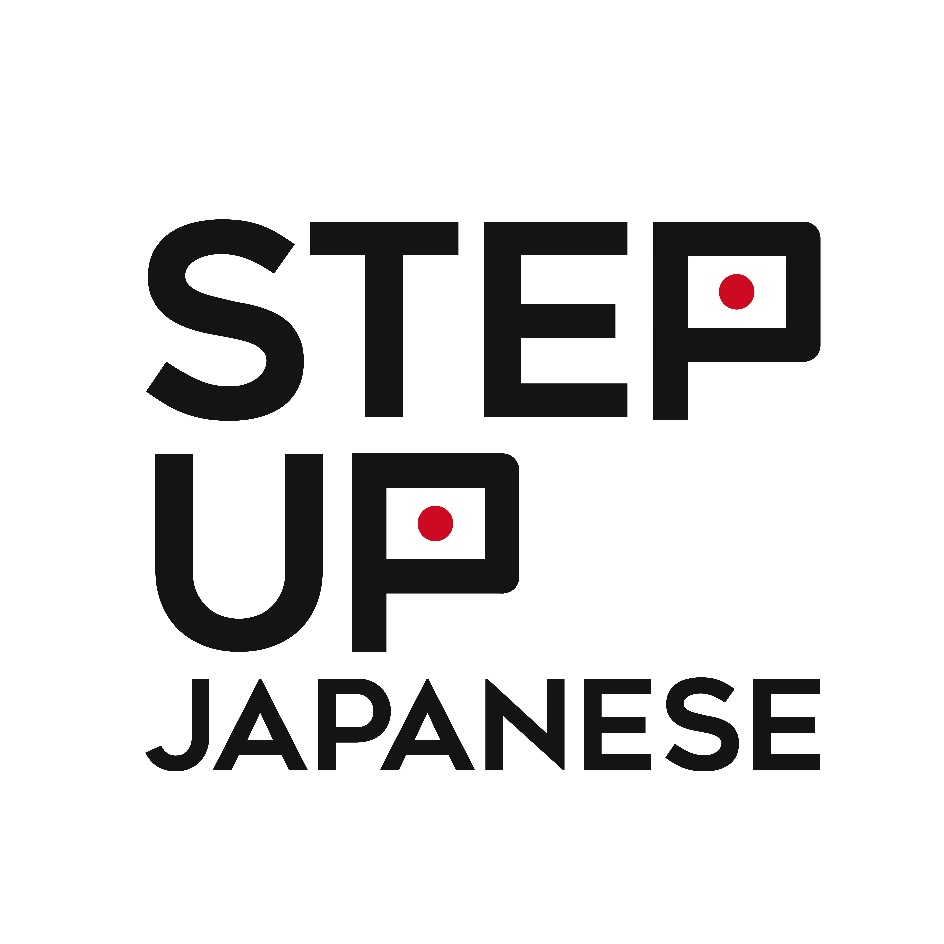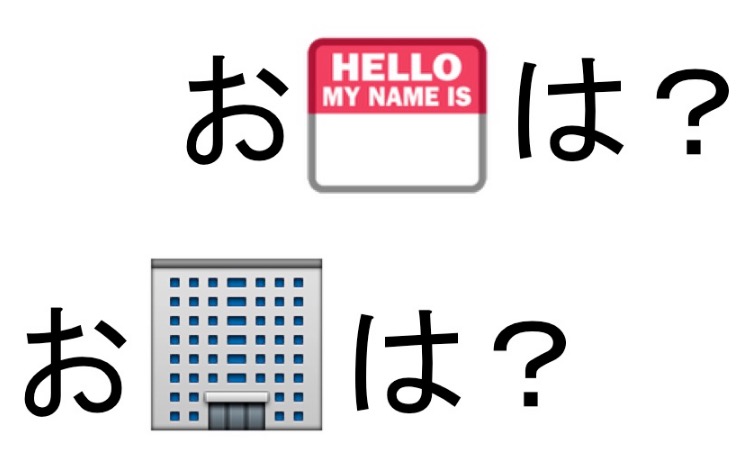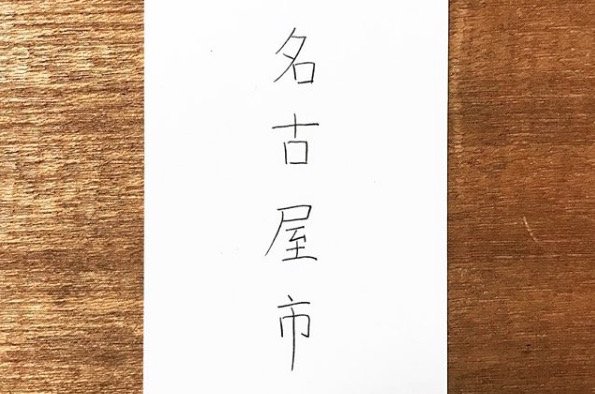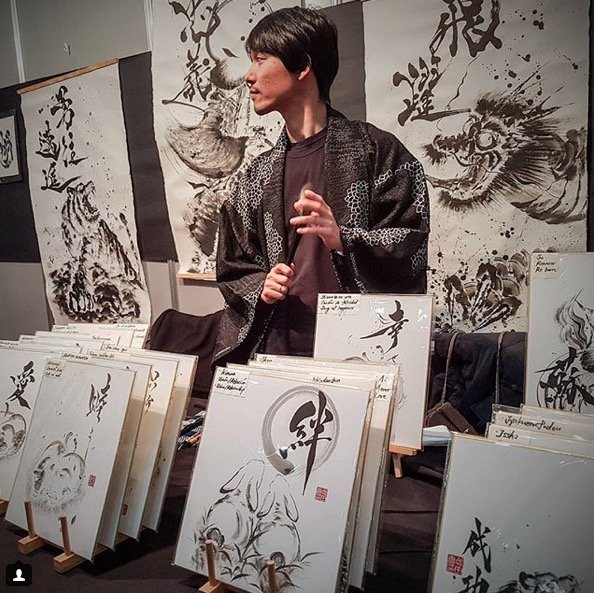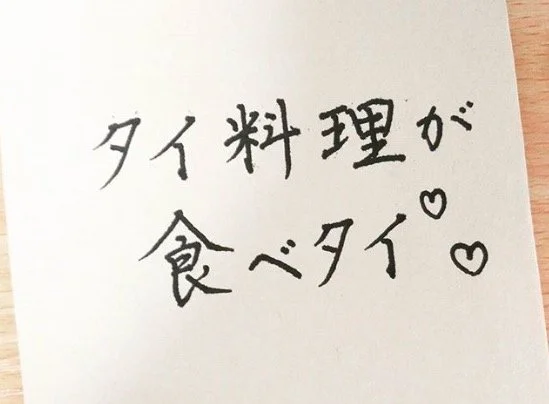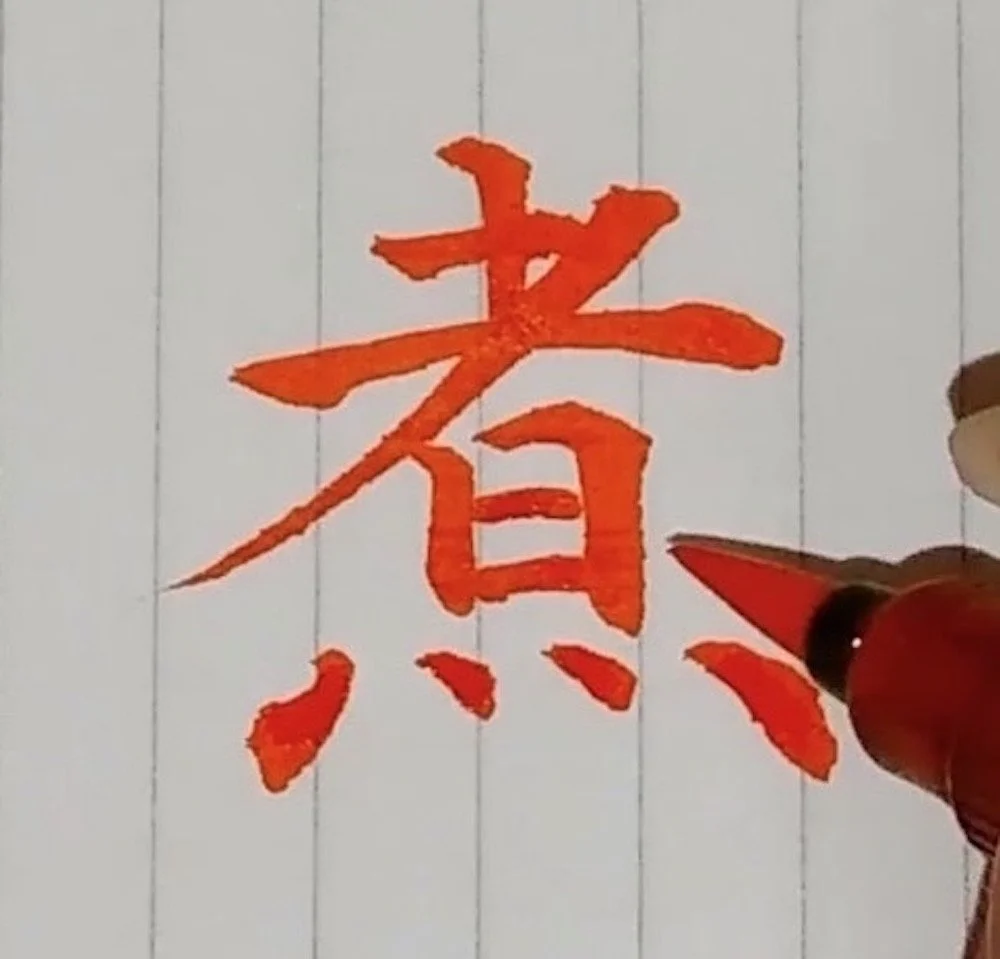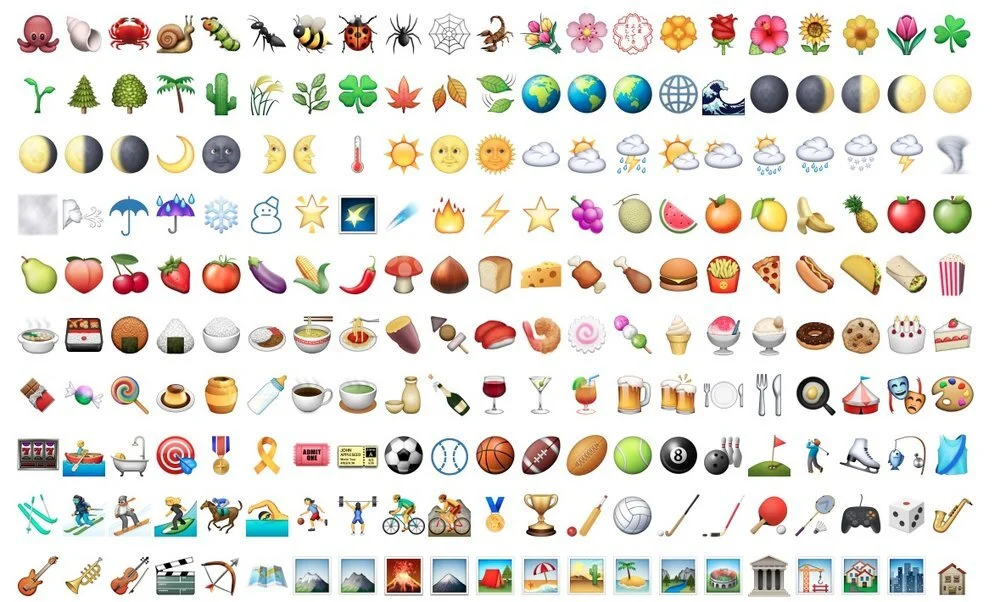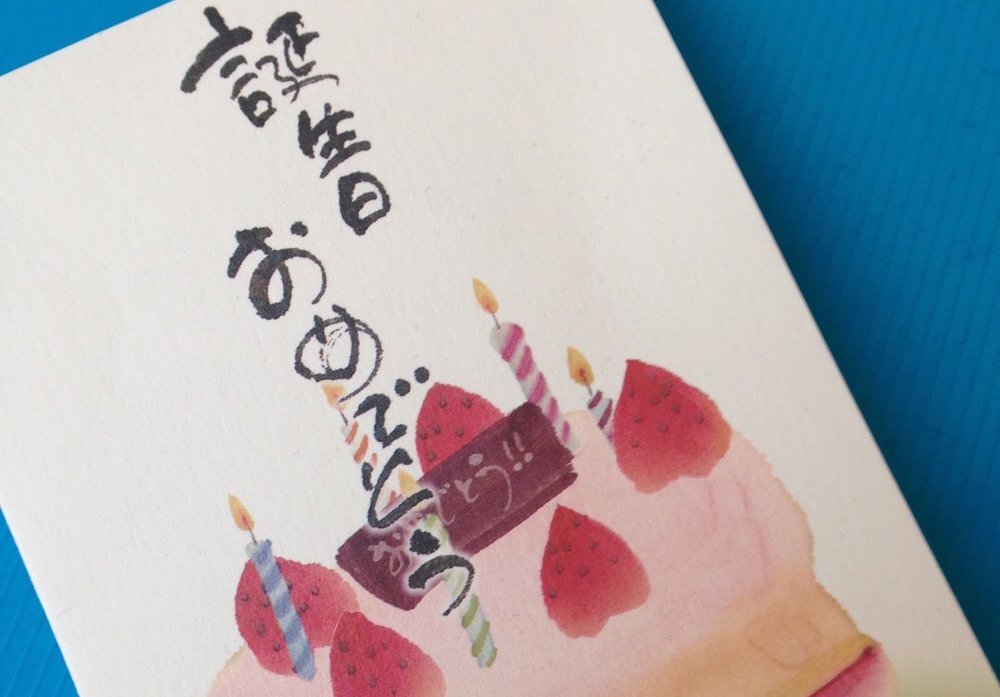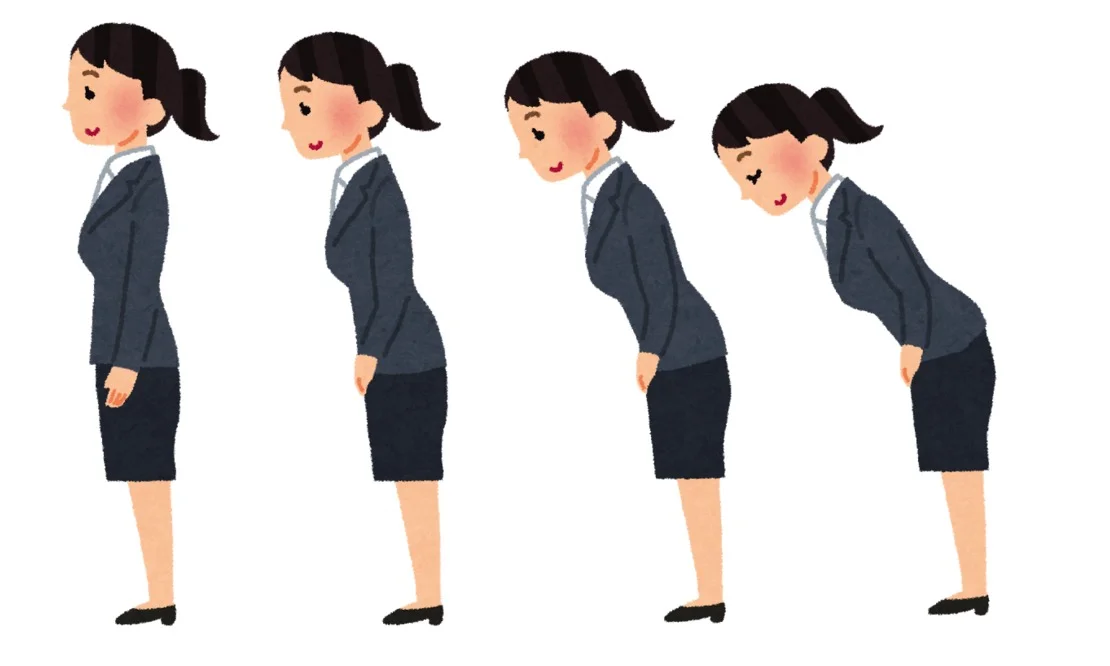Hi! This blog is no longer updated, but on this page you can find an archive of my blog posts, 2016-2022. Click here to view the blog index (a list of all posts).
For the latest news about Step Up Japanese, sign up to my newsletter.
Search this blog:
Is it "douzo" or "dozo"?
"Wait, is it douzo? In the book it says dōzo..."
It's both. And it's neither!
In beginner classes I use often rōmaji (English letters) to write Japanese in class. This is to give you a head start in learning to speak.
Some people think you shouldn't use rōmaji at all, because it will give you bad pronunciation.
That might be true if you're studying by yourself…
"Wait, is it douzo? In the book it says dōzo..."
It's both. And it's neither!
In beginner classes I use often rōmaji (English letters) to write Japanese in class. This is to give you a head start in learning to speak.
Some people think you shouldn't use rōmaji at all, because it will give you bad pronunciation.
That might be true if you're studying by yourself.
But if you have a teacher to teach you how to pronounce Japanese words correctly, and correct your mistakes, you can learn Japanese correctly using rōmaji.
There are different systems for writing Japanese in the English alphabet. Depending on which system is being used, a word could be spelled differently.
どうぞ (do-u-zo) means "here you are" / "go ahead".
Some romanisation systems use a macron (that’s a horizontal bar over the letter) to write the long vowel sound: ā ī ū ē ō. Using the macron, the word would be written "dōzo".
Another method is to spell out the long vowel sound using double letters: aa, ii, uu, ei, ou. That gives us "douzo".
Both "dōzo" and "douzo" are correct.
Sometimes, the long vowel isn't written in: "dozo". Technically, this is wrong!
You might also see ee and oo used instead of ei and ou: "doozo".
Personally I think "doozo" is just asking for trouble. That's not how the word is spelled in Japanese (it's どうぞ do-u-zo).
Of course, the truly correct way to spell the word is to write it in Japanese characters: どうぞ.
But if you’re writing in rōmaji, both "dōzo" and "douzo" are fine too. Just don't forget the long vowel!
First published Nov 2017; updated Sept 2021
"Does Japanese Have Plurals?"
After the excitement of our first school Summer Barbecue, I spent the day in bed watching one of my favourite films in Japanese.
It wasn’t a Japanese film though. I watched Hot Fuzz (or to give its Japanese title ホット・ファズ -俺たちスーパーポリスメン "Hot Fuzz: We Are The Super-Policemen!")
Watching British comedies dubbed into Japanese might not be the "purest" way to listen to Japanese. But if you enjoy it, it's definitely worth doing. Dubbed films are easy to watch, too, assuming you've seen the film before and know the plot already.
Anyway, there's a little scene in the Hotto Fazzu dub that's a nice example of Japanese plurals in action, so I thought I'd share it with you.
After the excitement of our first school Summer Barbecue (back in 2017), I spent the day in bed watching one of my favourite films in Japanese.
It wasn’t a Japanese film though. I watched Hot Fuzz (or to give its Japanese title ホット・ファズ -俺たちスーパーポリスメン "Hot Fuzz: We Are The Super-Policemen!")
Watching British comedies dubbed into Japanese might not be the "purest" way to listen to Japanese. But if you enjoy it, it's definitely worth doing. Dubbed films are easy to watch, too, assuming you've seen the film before and know the plot already.
Anyway, there's a little scene in the Hotto Fazzu dub that's a nice example of Japanese plurals in action, so I thought I'd share it with you.
Angel and Danny are in the corner shop, and the shopkeeper asks them:
殺人犯たち捕まらないの?
satsujinhan tachi tsukamaranai no?
"No luck catching them killers then?"
"Killers" is translated as 殺人犯たち satsujinhan-tachi. You take the word 殺人犯 satsujinhan (murderer) and add the suffix たち (tachi) - which makes it plural.
See? Japanese does have plurals! ... when it needs them.
Danny doesn't notice the shopkeeper's slip-up (she knows more than she's letting on), and replies:
人しかいないんだけど。
hitori shika inai n da kedo.
"It's just the one killer actually."
PC Angel, of course, mulls over the shopkeeper's words, and realises their significance: there's more than one killer on the loose.
It's a turning point of the movie, and it rests on a plural. Yay!
You can use たち like this when you need to indicate plurality:
私たち watashi-tachi we, us (plural)
あなたたち anata-tachi you (plural)
ジョンたち jon-tachi John and his mates
It's not that common, but it does exist. Keep an eye out for it! You never know, you might just solve a murder case.

First published 8th Sept 2017
Updated 11th Dec 2020
Why Does Everybody Forget Katakana?
I'll let you into a secret. I used to hate katakana.
Students of Japanese tend to start with its two phonetic alphabets. We start with hiragana, the loopy, flowing letters that make up all the sounds of Japanese.
Then we move on to katakana - all the same sounds, but in angular blocky font.
Hiragana seems fairly straightforward, I think. And when you start learning Japanese everything you read is written in hiragana, so by reading you constantly reinforce and remember.
Katakana? Not so much.
I'll let you into a secret. I used to hate katakana.
Students of Japanese tend to start with its two phonetic alphabets. We start with hiragana, the loopy, flowing letters that make up all the sounds of Japanese.
Then we move on to katakana - all the same sounds, but in angular blocky font.
Hiragana seems fairly straightforward, I think. And when you start learning Japanese everything you read is written in hiragana, so by reading you constantly reinforce and remember.
Katakana? Not so much.
The katakana "alphabet" is used extensively on signs in Japan - if you're looking for カラオケ (karaoke) or ラーメン (ramen noodles) you'll need katakana.
But if you're outside Japan, then beyond the letters in foreign names, you probably don't get a lot of exposure to katakana.
I think that's why a lot of beginning students really struggle to remember katakana.
Here are a couple of suggestions:
1) Use mnemonics
I learned katakana using mnemonics. For example, I still think katakana ウ (u) and ワ (wa) look super similar - I remember that ウ has a dash on the top, just like hiragana う (u) .
2) Practice, practice, practice
I'm not a huge fan of having you simply copy letters over and over again, but there is something to be said for "writing things out". By writing letters down, you activate muscle memory, which helps you remember. So get writing katakana!
3) Start learning kanji
It might feel like running before you can walk, but starting to read and write kanji (Chinese characters) before your katakana is completely perfect can be a good option.
Kanji textbooks have the Chinese readings of the characters in katakana, so learning kanji is also really good katakana practice.
And maybe, just maybe, you'll turn into a katakana lover?
Updated 23rd Oct 2020
What's the Difference Between Mina and Minna (And Why Does It Matter Anyway?)
If you watch Japanese TV or anime (or are paying attention in class) you've probably come across the Japanese word mina-san (皆さん) meaning "everybody".
But what's the difference between mina and minna? What's mina-sama all about? And ... does it actually matter?
Mina-san, konnichiwa! (皆さん、こんにちは ) Hello everybody!
If you watch Japanese TV or anime (or are paying attention in class) you've probably come across the Japanese word mina-san (皆さん) meaning "everybody".
But what's the difference between mina and minna? What's mina-sama all about? And ... does it actually matter?
1.皆さん Mina-san
Mina means "everybody", and it's commonly used with "-san" (the honorific suffix you put on the end of people's names to be polite).
Mina-san is often used when addressing a group of people, especially when they don't know either other too well or the situation calls for a slightly more formal greeting.
I find myself using mina-san in class a lot, which makes sense - I’m addressing a group of people.
As you might expect, Japanese YouTubers say “mina-san konnichiwa” a lot too ("hi guys!")
These example sentences from jisho.org should give you a good idea of the kinds of situation when mina-san is used:
2.みんな Minna
Also common is minna, which is just a spoken form of mina. Minna is more casual than mina.
Examples from jisho show us that people also use minna when they talk about everyone, as well as when addressing groups:
3. Beware! It’s not みんなさん minna-san
You can't mix them up and use minna-san though. That's incorrect.
Probably no one will mind or notice in a casual situation, but if you're trying to be polite, stick with mina-san. Or you can even go more polite with...
4. 皆様 Mina-sama
In more formal situations, the -san suffix is switched up to the more polite/formal -sama.
Mina-sama functions a lot like "ladies and gentlemen", or “esteemed guests”, and is used in writing, and in announcements:
Why does this matter?
Well really, which word you use is going to depend on the situation.
Mina-sama is super formal and it would sound weird if you use it with your friends. Likewise, minna is pretty casual and might not be appropriate in a business setting.
A lot of gaining fluency in a language is about choosing the right word for the right situation. The more examples you can read, and the more you can expose yourself to the Japanese language, the more these distinctions will start to make sense.
Mina-san, if you'd like to learn more Japanese with me, click here to check out my new online Japanese language courses!
First published 9th June 2017
Updated 7th April 2020
I Tried to Speak Japanese Every Day for a Month (Without Being in Japan)
Many people believe you need to live abroad to get speaking practice in a foreign language, but this isn’t true.
Similarly, people often assume that if you in Japan, like I did, you’ll pick up the language easily. But that’s not necessarily true either.
If you speak English, it’s possible - indeed easy - to live in another country for years and not become fluent in the language.
I didn't make any year-long New Years’ Resolutions this year. Instead, I decided to set myself some monthly language-related challenges. I’ll decide them as the year goes on, and I’ll probably do one every other month.
In January, I decided to speak Japanese every day for a month.
Many people believe you need to live abroad to get speaking practice in a foreign language, but this isn’t true.
Similarly, people often assume that if you live in Japan, like I did, you’ll pick up the language easily. But that’s not necessarily true either.
If you speak English, it’s possible - indeed easy - to live in another country for years and not become fluent in the language.
I didn't make any year-long New Years’ Resolutions this year. Instead, I decided to set myself some monthly language-related challenges. I’ll decide them as the year goes on, and I’ll probably do one every other month.
In January, I decided to speak Japanese every day for a month.
For context: I live in the UK, I don’t speak Japanese at home, and although I work as a Japanese teacher, I don’t currently teach Japanese every day. So this was going to take some effort.
When I lived in Japan, I was using Japanese every day. My Japanese reading and writing is significantly better now than it was then (I have five years’ more practice under my belt). But I don’t speak Japanese every day like I used to. So I decided to try!
I set myself the following, slightly arbitrary, rules:
1) Speak in Japanese for a minimum of 15 minutes a day (ideally more)
2) Texting doesn't count
3) Talking to yourself doesn't count either*
*Incidentally, I am a big fan of talking to yourself as a method of practicing a language. But I decided it wouldn’t count for this challenge.
Day 1
Every year on January 1st the Brighton Japan Club has a New Year’s swim in the sea. A great opportunity to practice different words for “ohmygodit’sfreezing” .
I don't swim this year, just go along afterwards for a post-swim lunch and some Japanese- and English-language chat in a café.
Tip number 1: Find people to speak with. You can’t practice speaking by yourself. Could you join a group class or a social club?
Photo from last year’s New Year’s Day Swim (2018). Photo by Tom Orsman
Day 2
I get up an hour early and have a 30 minute italki lesson on Skype before work. Italki is a website and app where you can find online language teachers.
I plan to start teaching on Skype in 2019, possibly using italki, so I take the opportunity to ask the teacher all about italki and how she finds it. The teacher is friendly and I have fun talking with her. I’ve never met her before – I just found her on italki.
Day 3
I go to the weekly Japanese-English Language Exchange with Brighton Japan Club. It’s a good way to meet Japanese people, and people interested in Japan. There’s usually a good mix of old and new faces, which keeps things fresh.
Day 4
I have dinner with a Japanese friend I met last month at the end-of-year party of the Brighton & Hove Japanese Club (a similarly named but different group to the Brighton Japan Club). We go to Goemon, arguably Brighton’s best ramen bar. We talk in Japanese all night.
Day 5
I go to 書き初め kakizome (first calligraphy of the year) at Brighton Japan Club. I don't speak much Japanese at this event and on the way home I wonder if it ‘counts’… I have a lot of fun though.
Day 6
I Skype with a friend in Japan, who I met when I lived in Nagoya. This was probably the most fun thing I did all week. I saw her last spring, so catching up over video chat, there is a lot to talk about.
I reflect that being able to talk with friends in Japanese is really important to me.
Tip number 2: make friends who speak the language you’re learning
Day 7
I have a 30 min italki “instant lesson” with teacher S. She used to live in Canada where she ran language exchange events. She’s thinking about studying abroad in the UK, so we chat about that. She talks quickly, and so do I, happily and unthinkingly.
Day 8
I go to Café an-an in Portslade for lunch. I chat briefly with the owner, Noriko, while eating katsu curry. I take home some 花びら餅 hanabira mochi (“flower-petal mochi”) sweets.
After lunch I have a video meeting scheduled with Jess from Nihongo Connection. We chat in Japanese for the first half of the call - Jess is British, so I wasn't expecting to talk with her in Japanese, but its fun. We make plans to meet up the following month in Edinburgh.
Day 9
Skype lesson with Sugita-sensei. I met Sugita-sensei at Yamasa in Okazaki, where I studied on the Advanced Japanese Studies Program in 2014. Now, I consider myself lucky to call him a friend as well as 先輩 (senpai; senior colleague) and teacher. When I have time, I usually have a Skype lesson with him once a week. We read fiction and news articles, and sometimes I write stories or essays and we work together to correct them.
Day 10
I’m going to London for the day, to the video-games exhibition at the V&A and to see Macbeth. I have an italki lesson with teacher H in the morning. I ask her how I can improve my speaking. She says the goal “improve my speaking” is too broad, and I agree. She suggests I should think about what kind of speaking I want to get better at; and what I want to be able to talk about. Then, focus in on those topics, by reading about them. This seems like very good advice.
Tip number 3: find a good teacher
Day 11
I go out for dinner with a Japanese friend and a Spanish friend. We switch between speaking English and Japanese all night.
Day 12
I spend the day out with my boyfriend and some friends. My boyfriend can speak Japanese, but we don’t speak Japanese together, because - well, just because we don’t.
We get home at 11:45pm and I realise I haven’t spoken any Japanese yet today. Reluctantly, my boyfriend agrees to speak Japanese with me until midnight. We set a timer for 15 minutes and I pour him a beer.
Day 13
I go to Brighton Japan Club’s annual new-year mochi-making event. My favourite events are the ones involving food! I eat squishy rice cakes and chat with some new people.
Day 14
I have an italki lesson at 7am with a new teacher, T. This is the only italki lesson I had that wasn’t really for me. He suggests some resources that are way too low a level for me and a Japanese grammar website with picture explanations that I think are kind of unclear.
I take this as a useful lesson in how not to teach on Skype.
Day 15
Term starts today, which means I teach STEP 1 (beginner) and STEP 2 (upper beginner) Japanese classes on Tuesday nights. STEP 1 students are doing a quiz about which country well-known brands are from. STEP 2 students practice asking each other to do things, which is always fun.
On the way home I wonder if teaching beginner level classes counts as speaking practice for me. Probably not, but I decide to let it count for this experiment anyway. It’s still three hours of Japanese time.
Day 16
7am Skype class with Sugita-san. We read a section on “Friendship” from Tsurezuregusa (徒然草, Essays in Idleness), a collection of essays written by the Japanese monk Yoshida Kenkō in the 14th century, and talk about it.
Day 17
I teach two more Japanese classes, STEP 3 and STEP 4, at pre-intermediate and intermediate level.
My higher-level classes usually need a bit less structure than beginner classes. I still speak more slowly than natural speech, but I don't plan the wording of my instructions in the same way as I do with beginner classes. Especially in STEP 4, students like to chat and always have good questions, which they can ask in Japanese.
Tip number 4: ask questions!
Day 18
I’m going to my office job 9-5 today (no chance to speak Japanese there), and to a birthday party afterwards (no Japanese speakers). So I get up at 7am and have another italki lesson with M-sensei. We talk about Brexit…
Day 19
I go to a Heart Sutra writing workshop with the Brighton Japan Club. The workshop is in Japanese with English interpretation. I have fun listening along to both.
Day 20
I Skype with another Japanese friend in Japan. She had a baby recently, so a lot has changed for her. She fills me on her new life. After our conversation, I walk around all day with a huge smile on my face.
Day 21
Another italki lesson with M-sensei. She is an ex TV announcer, so I ask a bunch of questions about pitch accent. (Briefly: Japanese has high-low tones, and pronouncing a word with the wrong pitch accent pattern makes you sound unnatural).
She says that my pitch is mostly good but I make occasional pitch and stress mistakes which identify me as a non-native speaker.
Like many non-native speakers, I have never explicitly learned Japanese pitch accent, and I think this is probably something I should rectify. She has me read an article from NHK news, and corrects my pitch accent. It’s hard.
I also go to see a Japanese film with another of my students – 君の名は (kimi no na wa; ‘Your Name’). We see another former student of mine in the foyer and speak briefly in Japanese.
Day 22
I teach two beginner classes. STEP 1 students are practicing verbs like 行きます、来ます、帰ります (ikimasu, kimasu, kaerimasu; go / come / come back), so I have them read a short story about my trip to Disneyland last year.
I am reminded that reading helps with speaking. We need to be exposed to lots of language in order to eventually produce it.
STEP 2 students are learning about giving directions. Confession: I find teaching directions really hard. I used to practice this by playing video games (students shout out directions while one person is playing), but the flash game wont work on the classroom computer any more. I consider switching this up next year.
I think more about input/output. How useful is it for my students to learn to give directions in Japanese? Not very. How useful is it for them to understand verbal directions in Japanese? If they go to Japan, probably very useful.
Tip number 5: Read! There can be no meaningful output without input.
Day 23
I ask Sugita-san more about pitch accent. He is currently teaching on a course for people studying to become Japanese teachers in Okazaki, Japan. He says many Japanese people don’t explicitly understand pitch accent either.
My boyfriend shows me a video series on Japanese phonetics by Dogen, the Japanese teacher and YouTuber. I go on an internet deep dive into pitch accent. Maybe that will be my next challenge…?
Day 24
I teach two Japanese lessons. In STEP 3 (lower-intermediate) we cover short forms in casual speech. I love teaching this because it’s so ridiculously useful and common in everyday speech. It’s not in the textbook we use at all, so I made my own materials.
Day 25
I go to the pub again with my Spanish friend and Japanese friend. Japanese friend is going back to Japan the following day. He has also, excitingly, just become a father. Lots to talk about. As before, we probably talk about half in English and half in Japanese.
Day 26
I go to an 生け花 ikebana (flower arranging) workshop with the Brighton Japan Club. The workshop is in English, but I chat with the organisers in Japanese a bit.
I have to rush off as I am going to see the film 万引き家族 (Manbiki Kazoku; Shoplifters) with my student in Eastbourne. I love hanging out wth my adult students outside of class, and I’m always super pleased when they invite me to spend time with them, especially when it’s Japan-related!
Tip number 6: find fun things to do related to the language you’re learning
Day 27
I go to Kantenya, the Japanese supermarket, and buy sashimi-grade tuna to make まぐろたたき丼 (maguro tataki don; chopped tuna rice bowl). I ask the staff how long it will take to defrost the tuna. She explains you can just take it out the freezer, or there is a proper technique that’s should make it taste better. She produces a handout that shows how to do it! They have the handout in Japanese and in English. I take the Japanese one. We talk about the Manbiki Kazoku film too.
Day 28
I have a 30 minute italki lesson with N-sensei. We talk about her plans to study abroad in the UK and my time in Japan. It’s fun, but I don’t really learn anything.
I reflect that just talking is not very good practice for me personally. I think I need to talk about difficult topics and be corrected quite closely.
Italki makes a distinction between “community tutors” (unqualified) and “professional teachers”. N-sensei is a community tutor, and mostly does “free talk”. On reflection, this is not really what I need from a paid class.
Day 29
Before my group classes, I teach a private lesson in a cafe. We go over some grammar points my student has questions about, but mostly I just try and get her to speak Japanese, without using English.
Most students need more speaking practice. The experience of being totally lost in language, and not understanding most of what’s going on is something we may not have felt since childhood. As such, it can be really scary.
I believe it’s a feeling you need to get used to if you’re going to make progress. I tell my student I want her to be a little bit outside her comfort zone - not so far that it’s terrifying, but just enough that she’s pushing herself and learning new things.
Day 30
Skype lesson with Sugita-san. We read ネギを刻む (negi o kizamu; literally “Chopping Leeks”) a short story by 江國香織 (Kaori Ekuni). One of my favourite things about my lessons with Sugita-sensei is that he introduces me to stories and essays I wouldn’t necessarily find by myself.
Day 31
A Japanese volunteer, Aria, comes to class with me. My students ask her questions and talk with her in Japanese. We also make 四コマ漫画 (yon-koma manga), manga comic strips with four panels. Aria helps out a lot and my students enjoy speaking with her.
I get requests from local Japanese people to come and volunteer at class fairly frequently. I’m grateful for their help, and it’s good for my students to practice speaking in this way.
Speaking in Japanese every day for a month - my conclusions
1) Find a good teacher
You need a teacher who fits your needs. If you just want speaking practice, find someone who will “just talk” with you. If you want to be corrected, ask your teacher to correct you more. Chatting with friends is good, but your friends aren’t language teachers (probably)
2) Make friends
The absolute best things I did this month – not just in this challenge, but the most fun things I did this month overall – was talk with my friends in Japan.
I was reminded too that being able to talk with friends in Japanese is really important to me.
3) Connect offline as well as online
If you live in a country where Japanese isn’t widely spoken, you might need to go online to find people to talk with. But I did get a bit bored of having so many Skype lessons, especially as I started to feel I wasn’t getting much out of it.
Plus, italki is kind of expensive to take lessons so often. I plan to start teaching online late this year, so I told myself that taking Skype lessons was research…
Speaking to people offline was way more fun for me.
4) Be open to surprises!
Japanese popped up in some unexpected places this month. I knew that Jess runs a Japanese speaking club, but she’s English so I wasn't expecting us to talk in Japanese so much. That was a lot of fun.
5) Find work using your languages
I get to use Japanese in my work, because I teach Japanese. Arguably it’s not really speaking practice for me, but my students always ask me good questions and help me see things about the Japanese language from a new perspective.
If you want to get serious about having more chance to use your Japanese, consider looking for a job or a voluntary position where you can use it. Could you work in a Japanese restaurant, or for a Japanese travel agency?
And finally…
At an advanced level, speaking a lot is actually not a great way to get better at speaking.
One of the italki teachers told me: “You don't need speaking practice, because you can already speak. If you read more, you’l be become able to talk more fluently about complex topics.”
This fits with what I know about input-based methods of learning languages – essentially, that these two things happen in this order:
1. You get input — you read and listen to sentences in some language. If you understand these sentences, they are stored in your brain. More specifically, they are stored in the part of your brain responsible for language.
2. When you want to say or write something in that language (when you want to produce output), your brain can look for a sentence that you have heard or read before — a sentence that matches the meaning you want to express. Then, it imitates the sentence (produces the same sentence or a similar one) and you say your “own” sentence in the language. This process is unconscious: the brain does it automatically.
(quote from Antimoon)
There can be no good quality output (speaking the language; writing it well) without massive amounts of input (listening to and reading the language).
But if you’re a beginner or intermediate learner, you’re probably not getting enough speaking practice.
Speaking Japanese every day was really fun. As you can see, it didn’t quite have the result I was hoping for, but I definitely learned a lot. Why not give it a go?
What's The Difference Between お and ご in Japanese Honorifics? (Part 2)
Previously we’ve talked about the polite little 'o' that appears in phrases such as o-genki desu ka?'
But when do we use お ‘o', and when is it ご 'go'? And why?
There are a few simple rules…

Previously we’ve talked about the polite little 'o' that appears in phrases such as o-genki desu ka?'
Click here to read Part 1 first - Three Ways You Should Be Using The Japanese Honorific お.
But when do we use お (o), and when is it ご (go)? And why?
There are a few simple rules:
1) ‘O’ for Japanese origin, ‘go’ for Chinese origin

The general rule is: お (o) is used with native Japanese words:
o-haka お墓 grave
o-kome お米 rice
o-sushi お寿司 sushi
o-shirase お知らせ notice
ご (go) is added to words of Chinese origin:
go-ryoushin ご両親 parents
go-renraku ご連絡 contact, get in touch
go-kyouryoku ご協力 cooperation
Why?
O and go are actually two readings of the same kanji (御) - ‘o’ is the kunyomi (also called the Japanese reading); ‘go’ is the onyomi (Chinese reading).
That's why we read it o with native Japanese words and go with words from Chinese.

2) Foreign loanwords only get ‘o’
Foreign words don’t usually get this prefix, but when they do, it’s an ‘o’:
o-tabako おタバコ tobacco
o-toire おトイレ toilet
3) Notable exceptions
Most native Japanese words get o, and most Chinese-origin words get go. But there are exceptions. Here are a few:
o-denwa お電話 (telephone)
o-shougatsu お正月 (New Year)
o-genki お元気 (well, healthy)
go-yukkuri ごゆっくり (take your time)

A final word of warning: only certain words get beautified with 'o' and 'go'. It’s best to stick with words that commonly have ‘o’ or ‘go’ added. If you start adding them all over the place, you'll sound a bit odd.
Now, go have fun being marginally more polite than you were previously!
Three Ways You Should Be Using The Japanese Honorific お (Part 1)
Fairly early on in your Japanese-learning journey, you'll learn some set phrases like:
o-genki desu ka? (How are you?)
o-shigoto wa nan desu ka? (What's your job?)
Usually I teach that the “o” in o-genki desu ka makes the question more polite. This is true, but it’s not the whole story.
Fairly early on in your Japanese-learning journey, you'll learn some set phrases like:
o-genki desu ka? (How are you?)
o-shigoto wa nan desu ka? (What's your job?)
Usually I teach that the “o” in o-genki desu ka makes the question more polite. This is true, but it’s not the whole story.
Honorific o (or sometimes go) is basically used for three things:
1) Being polite about someone else
It's good to be more polite about other people than you are about yourself, right?
So when you're speaking about someone else, there are certain words that get an o (or go) on the front:
o-shigoto お仕事 (your honourable job)
o-sumai お住まい (your respected abode)
Like in these common Japanese questions:
o-namae wa? お名前は? (What is your esteemed name?)
o-genki desu ka お元気ですか。 (Are you [person I respect] well?)
When you talk about yourself, however, don't use o or go: just namae, genki, kazoku, shigoto. You can't talk about your own o-namae or go-kazoku!
2) Sounding more polite generally
Adding o to a word can make your speech sound more polished. Words that don’t necessarily need o, but often get it, include:
sushi / o-sushi (sushi)
kome / o-kome (rice)
sake / o-sake (rice wine)
With these words, either way is fine. If you're trying to speak politely you might want to use the 'o' version.
Unlike the first group, this kind of o isn’t anything to do with whose sushi or sake it is. It just sounds a bit nicer if you stick the o on there. Like you’re respecting the rice.
3) Some words just always have it
So, some words need o/go only when you're talking about someone else. Others can either have it or not.
There's a third category, too - words where the o/go has been subsumed into the word completely, and can't really be detached:
Gohan (ご飯, meal/cooked rice) always needs go - there's no unadorned word "han" for rice (although there presumably was at some point.)
O-cha (お茶, tea) pretty much always gets o, as does o-kane (お金, money). Just cha or kane sounds quite rough.
Words like this don't really belong to the "o/go is polite" rule of thumb. It's best just to learn them as whole words.
O or go?
Generally, words of Chinese origin take the prefix go, instead of o:
go-kazoku (your esteemed family)
go-kyouryoku (your noble cooperation)
go-ryoushin (your respected parents)
There are some exceptions, though… but more on that next time.
First published (as “Hey! What’s That お Doing There?”) in December 2015
Updated 21 December, 2018
